PRESERVING A MILITARY LEGACY FOR FUTURE GENERATIONS
The following Reflections represents RM2 Tim Roach’s legacy of his military service from 1962 to 1966. If you are a Veteran, consider preserving a record of your own military service, including your memories and photographs, on Togetherweserved.com (TWS), the leading archive of living military history. The following Service Reflections is an easy-to-complete self-interview, located on your TWS Military Service Page, which enables you to remember key people and events from your military service and the impact they made on your life. Start recording your own Military Memories HERE.
Please describe who or what influenced your decision to join the Coast Guard.
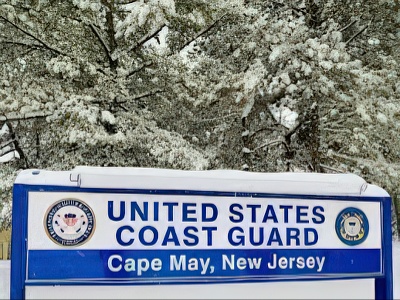
I would give most of the credit for my decision to join the Coast Guard to my uncle. He was in the Coast Guard during WWII and often talked about his experiences while patrolling the beaches on horseback along the New Jersey shores.
I was in high school during my senior year in Corpus Christi, Texas, in the fall of 1961. My high school counselor informed me that I would not be able to graduate because I had failed to earn credits in algebra during my ninth-grade year. To put it mildly, I was never a fan of school.
A friend of mine talked me into enlisting. We went to the CG recruiting office in Corpus Christi, Texas, to make inquiries. Afterward, we decided to join my friend, and we were put on a waiting list. In early January 1962, our physical exams were scheduled. I passed mine, but my friend failed his. I was now on my own. I remember the recruiter driving up to my home in early February and driving me to San Antonio to be sworn in. I left the next day with another recruit and boarded a plane for Philadelphia, then took a bus to the CG Training Center at Cape May, New Jersey.
Whether you were in the service for several years or as a career, please describe the direction or path you took. Where did you go to boot camp, and what units, bases, ships, or squadrons were you assigned to? What was your reason for leaving?
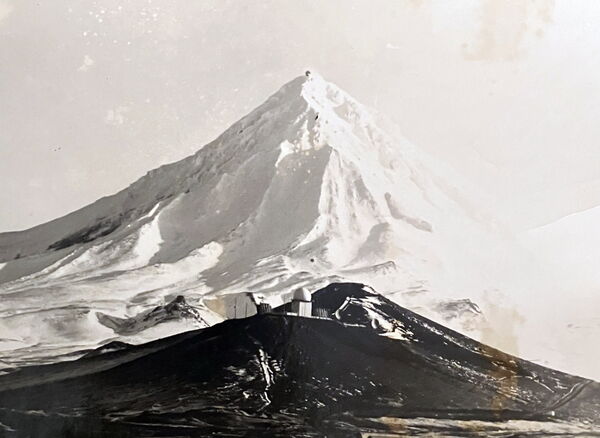
At Cape May, our company was quickly formed, and we met our drill instructor. I believe it was either Papa Company 44 or Papa Company 48. After three days of boot camp, one of our platoon leaders (2nd platoon) just wasn’t working out. Our drill instructor, Chief Rosato, announced tryouts for this position. I tried out and was given the position. I was told later that I was one of the youngest platoon leaders to lead a platoon.
After five different duty stations during my four-year enlistment, I had a decision to make. Do I reenlist with a nice bonus being offered, or do I get out? I chose to leave, and in all seriousness, I do not regret leaving. The isolated tour of duty in Alaska was the main factor in my not reenlisting. I knew I could never take another year of isolated duty as a radio operator; most isolated duty stations billet three radiomen. By staying in for 20+ years, my odds of being assigned to another isolated unit were extremely high.
I decided that I wanted to be the one to choose where I live, rather than being told. It was that simple.
If you participated in any military operations, including combat, humanitarian and peacekeeping operations, please describe those which made a lasting impact on you and, if life-changing, in what way?
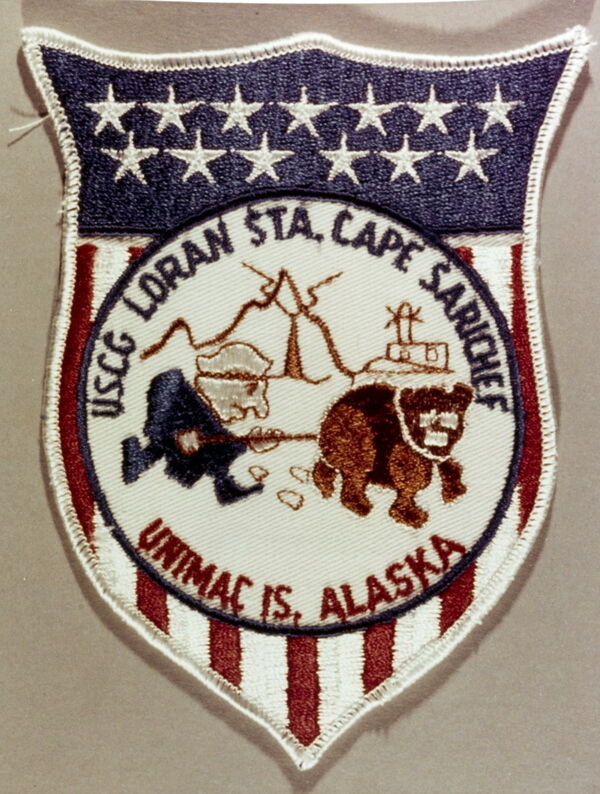
The U.S. Coast Guard is a multitasked branch of service, including wartime operations. It carries out many duties. During my four years, I was involved in various responsibilities. These duties included Search and Rescue Operations, Ocean Station November (two patrols), Washington Fisheries Patrol, Bering Sea Patrol, which monitored the movements of Japanese and Russian fishing vessels, Underway training with the Navy, and LORAN (Long Range Aids to Navigation) operations.
I served at five duty stations:
1. Boot Camp at Cape May, New Jersey,
2. Radioman School in Groton, CT..
3. Coast Guard Cutter Wachusett, which was home-ported in Seattle, Washington.
4. C.G. Loran Station Cape Sarichef, Unimak Island, Alaska.
5. CG Radio Station Northbrook (Chicago).
Three incidents remain very vivid in my mind.
I was stationed at Cape Sarichef Loran Station on Unimak Island, which was part of the Aleutian Islands, for the entire year of 1964. This was the year of the Great Alaskan Earthquake. It was 5:36 PM on Good Friday, March 27, when the tremors started. Our station lost all communication with the 17th District Headquarters in Juneau in June. I was standing radio watch on our military network, and all communication was out. We resorted to using our Ham Radio (KL7CGA). We were able to send Operational Immediate messages concerning our status, along with Scotch Cap Light Station status, to Juneau using a Ham Operator in Japan. We later found out that the Japanese ham operator was able to send our messages to a Hawaiian ham operator, who then forwarded our status to Juneau. The earthquake was later reclassified as a 9.2 magnitude reading on the Richter scale. At that time, it was the 2nd-highest ever. All personnel at Cape Sarichef and Scotch Cap were safe and accounted for. (Note: Must Read – THE DEMISE OF SCOTCH CAP LIGHT STATION APRIL 1, 1946)
Our unit at Cape Sarichef also received a mayday call from the Fishing Vessel Blue Ocean, which had run aground on our island (Unimak) about 7 miles from our station. A crew was assembled and left in two tracked vehicles. One of our men shot a line to the boat, which was about 60 yards from shore. After a heavier line was secured to the vessel, one of the tracked vehicles was used as the beach anchor for the line, and all five men scurried safely to shore along the lifeline.
CG Radio Station Chicago (NMP) received an alert that United Airlines FLT 389 had crashed into Lake Michigan about 20 miles east of Ft Sheridan, Illinois. Our station (NMP) was assigned to coordinate communications with the CG Radio Station Cleveland (NMD) on search and rescue operations. The following day after the nighttime crash, bodies were found by the CG Cutter Arundel. This was the first crash of a Boeing 727 aircraft. The crash was most likely the result of pilots misreading 3-pointer altimeters by 10,000 feet. NOTE: United Airlines wanted to reward all CG Units that assisted in the crash of FLT 389. We were told that they wanted to give monetary amounts, but at a later date, our unit (CG Radio Chicago) received a new color television set from United Airlines. We may have been the first military units in the world to receive a color TV for their recreation rooms.
Did you encounter any situation during your military service when you believed there was a possibility you might not survive? If so, please describe what happened and what was the outcome.
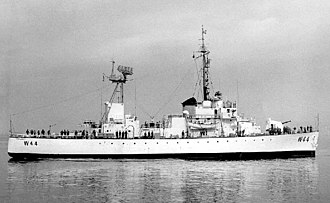
I was 18 years old when I reported aboard the CGC Wachusett. I had never been to sea and had recorded minimal time on boats in freshwater. I had no idea what going to sea would be like. The first cruise was on a training run in Puget Sound. We backed away from our pier and started to navigate away from Seattle. It took me 3 months of time at sea to overcome nausea. My only conscious time of fearing a bad consequence was the first few days of the Bering Sea Patrol I participated in. Ask anyone who has ever sailed in the Bering Sea during rough weather, and they will tell you that it is very frightening during these times.
On one of the two Ocean Station November patrols I participated in, the Captain ordered a swim call for all interested. Three lifeboats were launched, and gunners’ mates were assigned M1 rifles for shark watch. Not many people can claim that they swam in the Pacific Ocean halfway between San Francisco and Honolulu.
Of all your duty stations or assignments, which one do you have fondest memories of and why? Which was your least favorite?
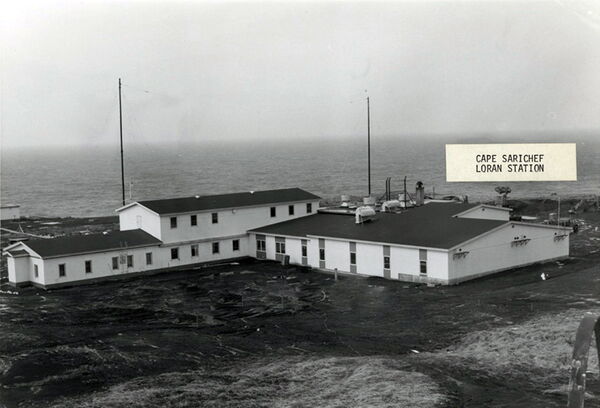
Cape Sarichef LORSTA was my least favorite duty station. I should have known that when I touched down on the Reeve Aleutian Airlines DC3 at their landing strip and deplaned, the greeting sign said it all: WELCOME TO CAPE SARICHEF LORAN STATION, WHERE THERE IS A WOMAN BEHIND EVERY TREE. Yep – no trees on the entire island.
This was an isolated duty with 14 other men. We got mail twice a week if the plane made it in. At times of bad weather, the winds coming off the Bering Sea can be upwards of 90 MPH. CG Air Station Kodiak would make one or two logistics flights in their HU-16E amphibious planes each month to bring us supplies and movies. I will never forget the time we received the movie BYE BYE BIRDIE starring Anne Margaret. We watched it continuously from sunset to sunrise.
Any Coastie who billeted at CG Radio Chicago will swear on a Bible that it was the best of the best duty stations in the Guard. The station was located in Northbrook, Illinois, on Dundee Road, about twenty miles north of downtown Chicago. It doesn’t get any better than to be within earshot of the Sox, the Cubs, the Bears, the Blackhawks, the Bulls, and the Packers. On weekends when the cook was off duty, the crew had an open galley. On Fridays, he would travel to the Great Lakes Naval Training Station Commissary and pick up the weekend supplies that all of us had ordered. We ate like kings during weekends.
In addition to standing radio watches, another part of my daily job was to go on a mail run into downtown Chicago to the CG Headquarters. And Liberty. A multitude of friendly bars, eateries, and other entertainment. Our favorite bar in downtown Northbrook was the Cyprus Inn. I was discharged at my Chicago Radio unit and immediately started working for the U.S. Postal Service in Northbrook as a clerk. More on this later.
From your entire military service, describe any memories you still reflect on to this day.
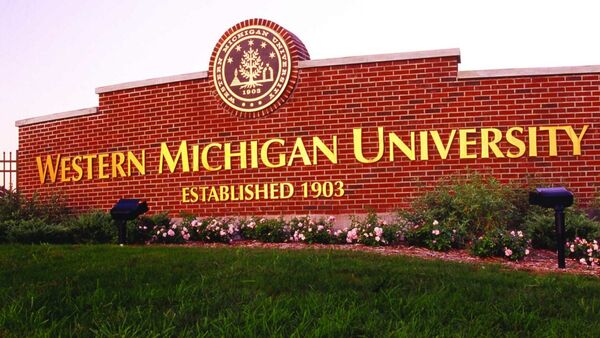
I now live in Michigan, and I frequently travel with my wife to visit her cousins in Arlington Heights, Illinois. I always make it a point to travel to Northbrook and grab a drink at the Cyprus Inn. I also walk in the park downtown, where I played on a local softball team while stationed there.
Just before my enlistment was up, my brother in Michigan offered to let me live with his family and attend college. I decided not to reenlist because I had taken the civil service test for the Post Office and passed. I had a job offering at the Northbrook Post Office when I got out. After one year at the PO, I decided it wasn’t for me. With the offer from my brother accepted, I enrolled at Western Michigan University in the winter of 1967.
While at Cape Sarichef Loran Station, I took the GED (High School Equivalency Exam) test and passed, which allowed me to register for classes at WMU. I had two things going for me when I went to enroll. One, I was a veteran, and two, I was starting school in the winter semester. Many freshmen who enrolled in the fall semester of 1967 found that college wasn’t for them, or partying took priority, and they were not invited back for the winter semester.
I will never forget my grades for my first five courses: three C’s and two B’s. I was on my way. The most challenging thing I faced at school was relearning the lost art of studying. I remember reading, rereading, and rereading again to gain the meaning and understanding of paragraphs. It worked. I was on my way.
What professional achievements are you most proud of from your military career?
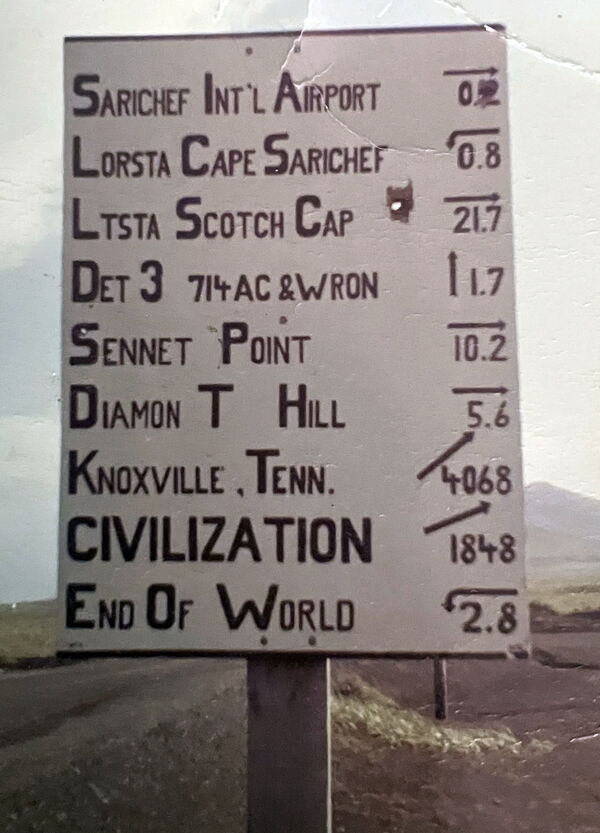
My uncle was the one person who influenced me to join the Coast Guard. I did have a difficult decision to make when my term of enlistment was coming to an end. I was offered a very substantial bonus to re-up, and my promotion to RM1 (E6) is expected to occur within one year. As I stated earlier, I went to the Post Office route and put going to college on hold.
Of all the medals, awards, formal presentations and qualification badges you received, or other memorabilia, which one is the most meaningful to you and why?
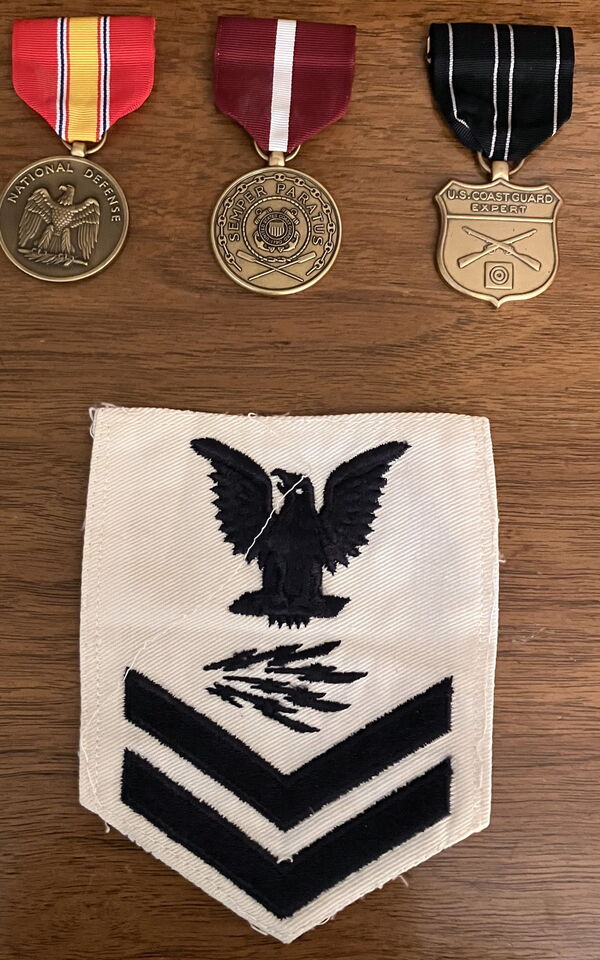
Being selected to be a platoon leader in boot camp was an honor for me. I loved most things about boot camp. The low setting on the thermostat at night during the winter, with one blanket in February, March, and April, in New Jersey, was not a high point on anyone’s favorite boot camp experience. I was also one of only two recruits of a total of 80 who qualified for expert rifleman during boot camp. Our company had the honor of traveling to Washington, D.C. and marching in a parade for the Shah of Iran.
Chief Rosato had the confidence in me to lead a platoon, and he also went to bat for me when it came to letting his superior know that I would succeed in radio school at Groton, even though I was a high school dropout. Our radio school started with 32 men. We graduated with only 8. Twenty-four of the 32 dropped out for two reasons. They may not have taken typing in school, so even if they knew that the letter A was dot/dash, they couldn’t type the letter A before the next letter code was sent because they didn’t know where A was on the typewriter.
Another person that I admired was Chief Radioman, Billy Jacobson. He and his wife, Audrey, treated the radio gang as part of their family. Thirty-some years later, I had the opportunity to visit Audrey and her daughter in Seattle. That visit was a memorable moment in my life. I have often thought of many of the shipmates that I served with, but have never pursued searching for them. That is on me.
I graduated from WMU in June of 1970 and was hired by Mattawan Elementary School, and started teaching in September of 1970. I earned my Master’s Degree three years later. I taught 4th grade for 30 years. I retired from teaching in 2000. I coached track, cross country, baseball, and started the hockey program at Mattawan. Upon retirement, I continued to work at the high school as Director of Student Activities and Energy Manager until 2010.
Which individual(s) from your time in the military stand out as having the most positive impact on you and why?
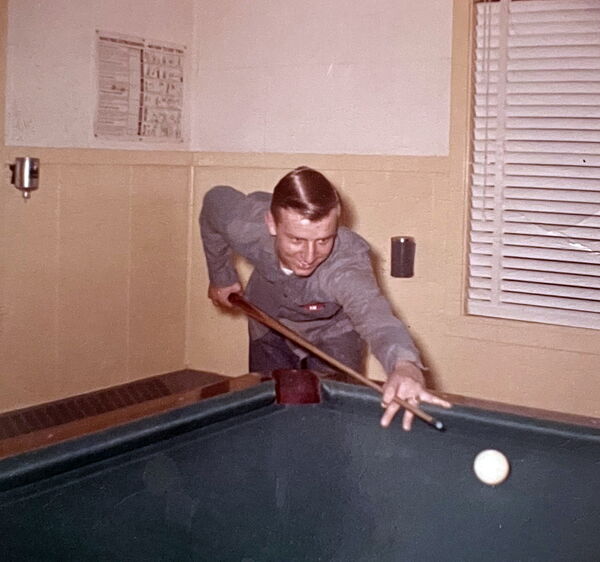
Chief Rosato and Chief Jacobson, as I stated earlier. Both of these men cared for the men who served under them. Chief Rosato was responsible for my attending radio school after boot camp, and Chief Jacobson was more of a father figure to me. He shared his family with our entire radio crew.
List the names of old friends you served with, at which locations, and recount what you remember most about them. Indicate those you are already in touch with and those you would like to make contact with.
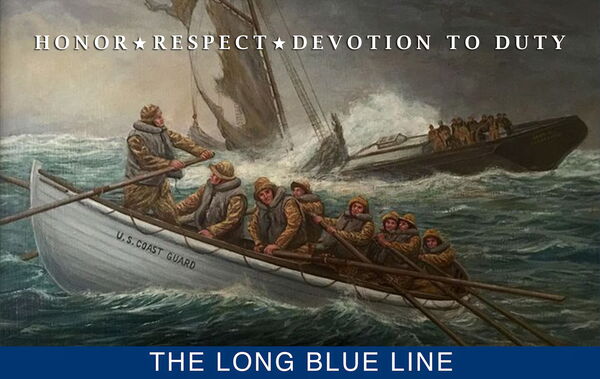
I served with many great guys, but unfortunately, I did not keep in contact with them after I left the service in 1966. The two men who helped me the most in my Coast Guard career were Chief Rosato and Chief Jacobson.
Can you recount a particular incident from your service, which may or may not have been funny at the time, but still makes you laugh?
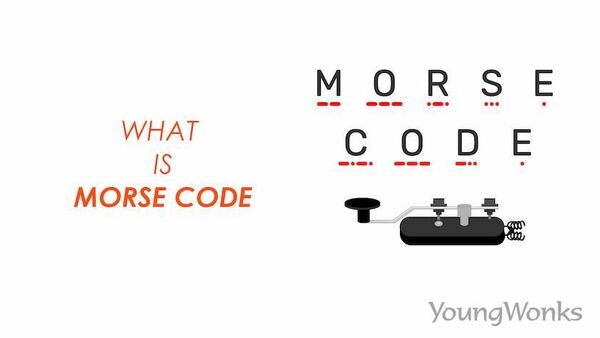
In radio school at Groton, Conn., our class learned Morse code with perfect conditions in the classroom. There was absolutely no static when doing these training sessions. During my first watch at sea, I was monitoring our primary frequency. My watchstander with me (an RM2) asked me, “Are you going to answer CG RADSTA Westport? He has been calling you for 3 minutes.” With all the static on the frequency, I barely made out the call until he pointed it out to me. Welcome to the real world of CW communications.
What profession did you follow after your military service, and what are you doing now? If you are currently serving, what is your present occupational specialty?
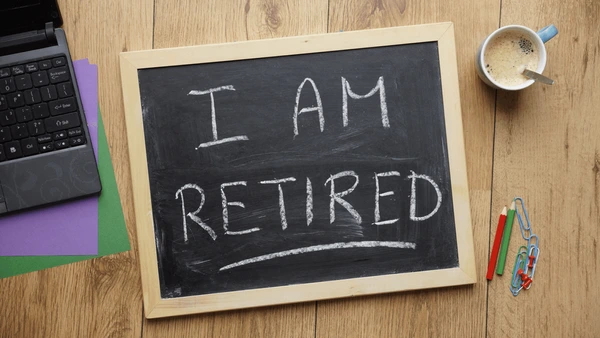
When I left the CG, I worked as a mail clerk at the Northbrook, Illinois, Post Office. After one year of this work, I moved to Michigan and attended college. I taught elementary school at Mattawan, Michigan, for 30 years and worked another 13 years at other positions at the school. I am currently retired. I look back at my CG years as my formative growth years in my life.
What military associations are you a member of, if any? What specific benefits do you derive from your memberships?
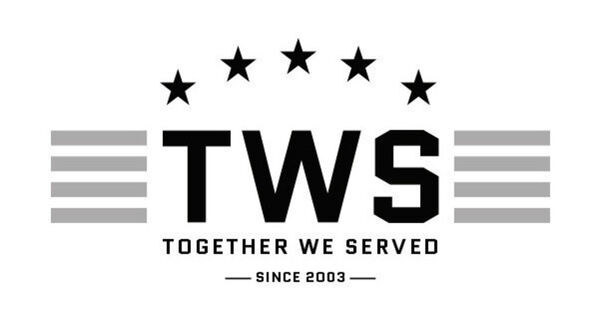
Along with my membership in TWS, I joined the local American Legion Post years ago, but I am no longer an active member.
In what ways has serving in the military influenced the way you have approached your life and your career? What do you miss most about your time in the service?
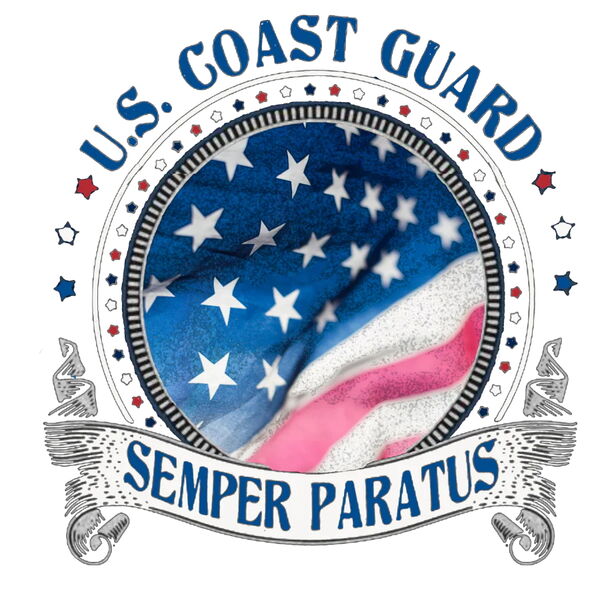
The military brought order to my life. It helped me to achieve goals (GED, pursuing college, teaching, and coaching),
Now, about the Coast Guard. I cherished the time that I spent in the Coast Guard. In fact, my wife often asks me why I didn’t stay in. I did, for a while, sincerely ask myself that same question. In the end, it all came down to this: I wanted choices of my own of where to live and what to pursue. I really didn’t want someone else to tell me where my next job location was and when to report for duty. My brother’s offer to live with his family and attend college was the path I took. I have no regrets, but I will say this. If I had chosen the CG path, I would have succeeded because the Coast Guard set me up to succeed.
If you are a recruit, I can tell you that the sky is the limit. The CG offers you a chance to become a better person in all aspects of life. When I went through boot camp, it was a 12-week stint. We were well-trained, and we were all taught with a purpose. The instructors that I witnessed at boot camp were top-notch at getting the most out of each and every recruit. With the Coast Guard, each day, at each unit, you are always ready to do your best. Semper Paratus
I do enjoy TWS and the stories from fellow veterans about their service time.
Based on your own experiences, what advice would you give to those who have recently joined the Coast Guard?
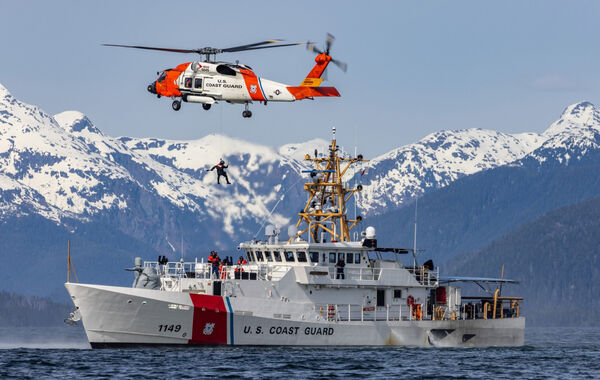
Most recruits are young men who are looking for adventure. I can tell recruits that you are in for an exciting journey during your four-year service stint. You will have a chance to be a part of the best of the U.S. Military Services. I give the CG credit for giving me the opportunity to grow as a person. Make sure you give it your best shot.
In what ways has TogetherWeServed.com helped you remember your military service and the friends you served with?
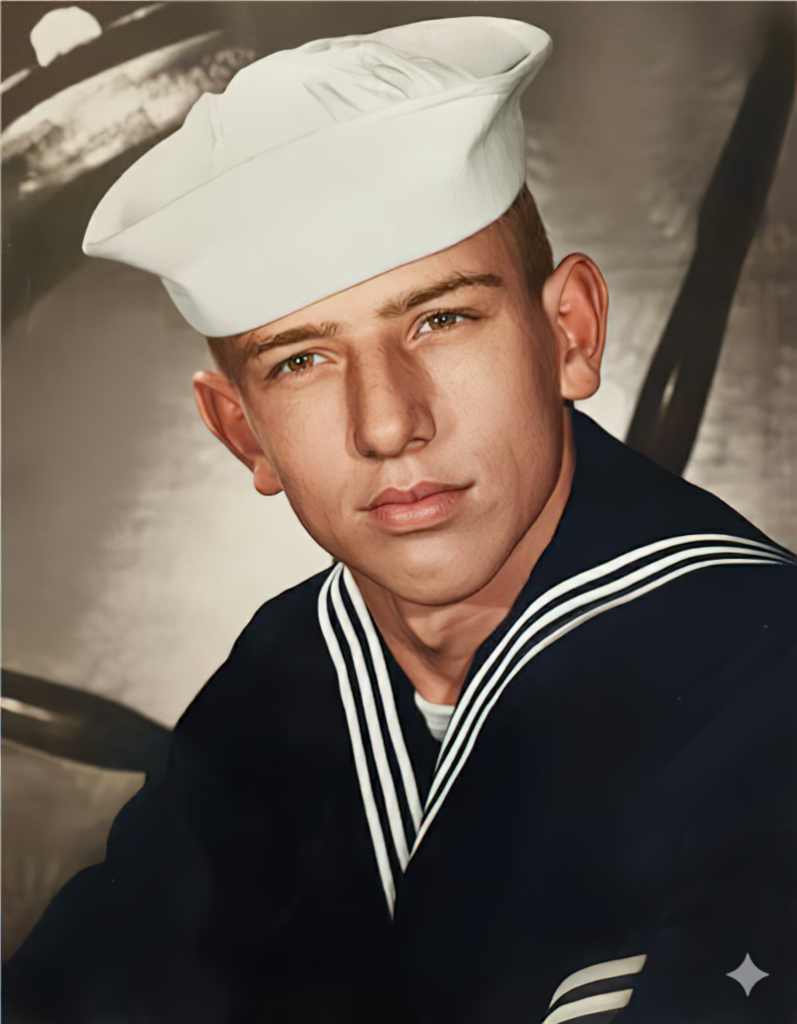
Reading many of the articles triggers memories of years gone by. Most are all great memories. When I look back on my life in the CG, I realize that leaving school before graduation was the best choice I could have made at the time. I was unhappy with high school and looked forward to what was in store for me with enthusiasm. A few months ago, I found out that Texas had a program that would grant high school dropouts a path to receive their H.S. Diploma if they served during wartime activity. I applied and received my diploma, along with a letter asking if I would like to participate in the graduation ceremony with the 2019 graduating class. Other members of TWS who dropped out of school should check with their state to find out if this program is available to them.
PRESERVE YOUR OWN SERVICE MEMORIES!
Boot Camp, Units, Combat Operations
Join Togetherweserved.com to Create a Legacy of Your Service
U.S. Marine Corps, U.S. Navy, U.S. Air Force, U.S. Army, U.S. Coast Guard

0 Comments